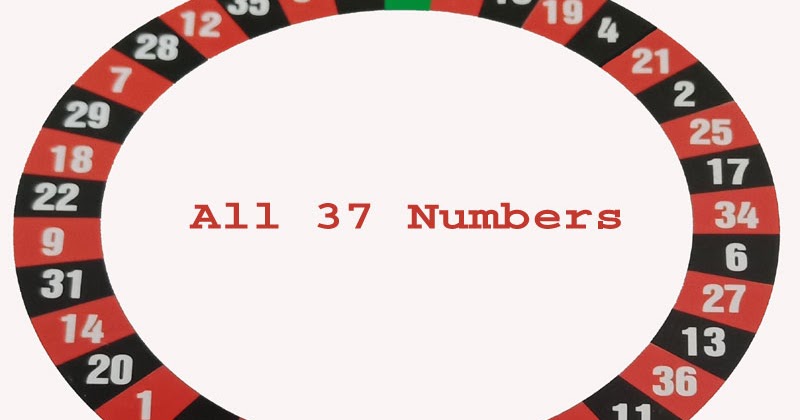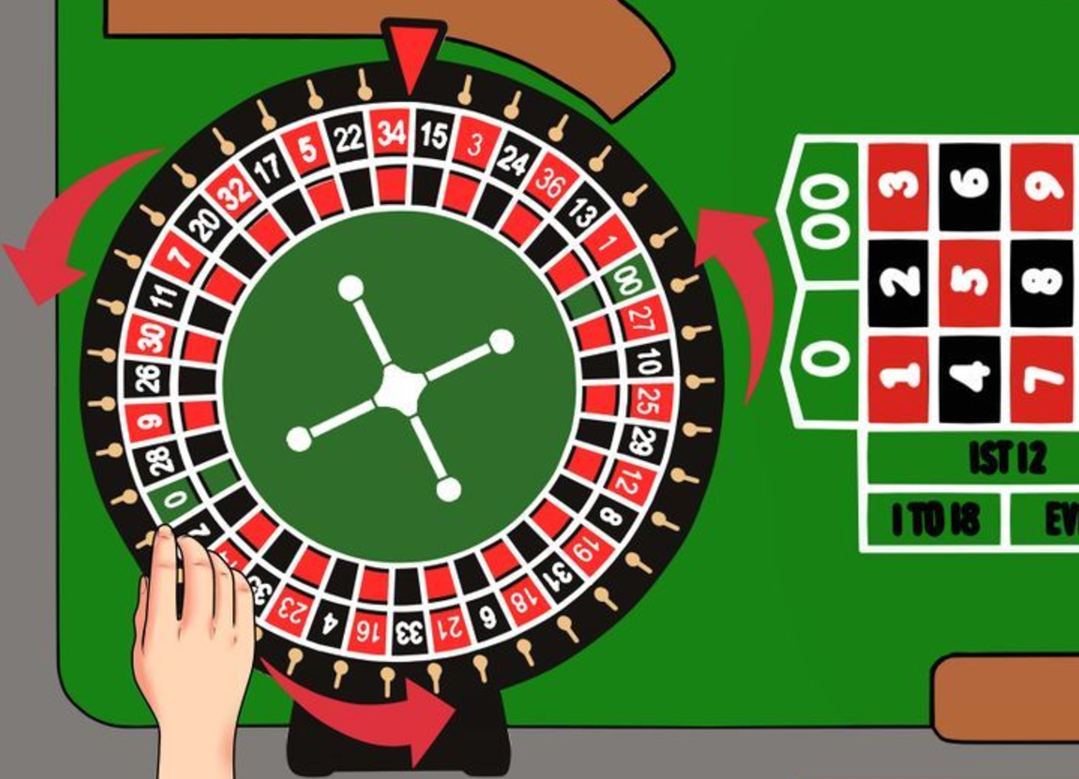- Roulette Winning Numbers History Yahoo
- Roulette Winning Numbers History Today
- Numbers On Roulette Wheel
In 1873, the roulette player Joseph Jagger, made roulette history. He hired six men to keep track of the winning numbers at roulette wheels in a Monte Carlo casino. Reviewing this information, Jagger found that specific numbers were hit more than others. He was able to win $400,000 at this casino, basing his 'luck' on the idea of teamwork.
So the best roulette bet is betting on areas of the wheel. In fact it's the only way to change the odds of winning at the table. But there's a catch. If your roulette system was accurately predicting the winning number (or winning area of the wheel), you will have increased your odds of winning. It is possible to place the following bets in roulette: (1) straight, or single-number (en plein), in which the chips are placed squarely on one number of the layout, including 0 (and also 00 on American layouts), so that the chips do not touch any of the lines enclosing the number; a winning single-number bet pays 35 to 1 (for each unit bet, a.
77BetSG Online Betting Singaporeis offering the correct and genuine news and updates about the sports. The betting at the table will result in more money and cash with the correct information. The placing of the stakes at the right team will improve the winning percentage of gamblers.
Several years later, another gambler, Charles Wells, visited the same Monte Carlo casino. Charles Wells was later known as the 'Man who Broke the Bank at Monte Carlo', because he was able to win over 2 million francs in two days. A song written by Fred Gilbert and entitled 'The Man who Broke the Bank at Monte Carlo' has immortalized Wells.
In the year 2004, Ashley Revell, a Londoner, sold all of his belongings and arrived at the Plaza Hotel in Las Vegas with $135,300. This was a well advertised stunt and was broadcast on the British Sky One channel – live. He put all his money on 'Red' at the roulette table in a 'double-or-nothing' bet. The ball landed on red-7 and Revell walked out with his net value doubled to $270,600. It is bets like this that make people famous roulette players. Revell later said it was a really crazy thing to do, and he would never do it again.
Roulette Winning Numbers History Yahoo
With the advent of computer technology, roulette players began looking for ways to 'cheat the house' with computerized systems.
In 1955, two MIT students, Edward Thorp and Claude Shannon, created a computerised device that could predict the odds of the game of roulette. Free html5 code examples. There is no record of how much they won, if at all, but their names are remembered because of their ingenuity.
In the 1970's, a group of students at the University of California Santa Cruz, who called themselves the Eudaemons, after the Eudaemonistic philosophy of Aristotle, invented a small computer which increased their odds of winning at roulette. They used it for a short period of time in Las Vegas, earning themselves $10,000. But then their device short-circuited and burned one of the group, which ended their roulette days.
A recent addition to the 'famous roulette players' was a Spaniard, Gonzalo Garcia- Pedayo, who went to the Casino de Madrid and used a computer device to determine which number was hit most often on the roulette wheel. He managed to win over a million dollars over a period of several years. However, the casino caught onto his device and took him to court, but the court ruled in his favour.
I hope you have enjoyed this short article about some of the worlds most famous roulette players. The next time you take a trip to a gambling city to play roulette remember that there is a lot of history behind this wheel, many millionaires made, and even more that lost it all just for the chance to become rich at the most popular game at the casinos.
Roulette Winning Numbers History Today
Feel free to take a look around my other Roulette articles and I'd be thrilled to see you on my roulette blog where you can leave your thoughts or simply take a look around.
In 2020, the game of Roulette will celebrate its 300th birthday. Iconic, exciting, and often the centrepiece of the casino, Roulette is the definitive casino table game; a mechanical wheel, a bouncing ball, a range of betting options. The wheel spins, a hush descends, your number hits, the room explodes.
Roulette encapsulates the casino gaming experience. There is a range of varied betting options. You can play it safe and just bet odds, evens, and colours; or you can live dangerously and play a single number. You have the excitement of the spinning wheel and the thrill as the ball clatters its way to its final destination. Finally, you can see the house edge. The green zero is one of the clearest representations of how a casino makes its money. When the zero lands, the house wins.
One Roulette to Rule Them All
Culturally, Roulette is strictly A-list. Katy Perry, Rihanna, System of a Down, and Bruce Springsteen have written songs about it and the game has featured in several films, including: Diamonds Are Forever, Dirty Rotten Scoundrels, Indecent Proposal and – most famously – Casablanca.
Perry Spins the Wheel
After three centuries of watching the ball bounce its way to heartbreak and fortune, we are clearing the chips off the table and turning the clock back. Here comes a brief history of Roulette – no more bets, please…
Without the laws of thermodynamics, the game of Roulette probably wouldn't exist. The original Roulette wheel evolved from the challenge to build a perpetual motion machine; a device that completely eliminates friction and will maintain motion forever. Although an impossibility, it's a challenge that has long captured the imagination of inventors.
A Happy Accident
One such inventor was the Frenchman Blaise Pascal. Born in 1623, Pascal was a child prodigy, inventor, mathematician, and engineer. He built his first mechanical calculating machines when he was still a teenager. In later life, Pascal decided to take on the perpetual motion challenge. In 1655, he created a Roulette machine. The name derived from the French for ‘little wheel'.
Perpetual motion – the scientific challenge that led to roulette
By the early 18th century, there were several iterations of mechanical – wheel-based – betting games to be found around Europe. In London, a game called roly poly had a vertical wheel with black and white slots. Players could bet either colour. In Italy, the early roulette betting format was taking shape with the game biribi; here players could bet columns, singles, and adjacent numbers.

Other games included ace of hearts, EO (even odd), and hoca. Roly poly or roulet was finally exported to Paris where it became known as Roulette. It was first mentioned in 1788 and was still only a 50/50 betting game.

The Roulette Revolution
By 1796, Roulette had metamorphosed into the game we know today. We know this thanks to the French writer Jacques Lablee who wrote a book called ‘Roulette or the history of a player'. The book is a collection of letters from the gambler to his wife and perfectly describes all the basic Roulette bets, including red, black, even, odd, passé (top numbers), and manqué (low numbers)
By 1843, Roulette was enjoyed across both Europe and the US rapidly becoming one of the most popular casino games. In Bad Homburg, French brothers Francois and Louis Blanc introduced the green single zero. The standard was both a black and red zero. The single zero gave the house a smaller edge.
Numbers On Roulette Wheel

Other games included ace of hearts, EO (even odd), and hoca. Roly poly or roulet was finally exported to Paris where it became known as Roulette. It was first mentioned in 1788 and was still only a 50/50 betting game.
The Roulette Revolution
By 1796, Roulette had metamorphosed into the game we know today. We know this thanks to the French writer Jacques Lablee who wrote a book called ‘Roulette or the history of a player'. The book is a collection of letters from the gambler to his wife and perfectly describes all the basic Roulette bets, including red, black, even, odd, passé (top numbers), and manqué (low numbers)
By 1843, Roulette was enjoyed across both Europe and the US rapidly becoming one of the most popular casino games. In Bad Homburg, French brothers Francois and Louis Blanc introduced the green single zero. The standard was both a black and red zero. The single zero gave the house a smaller edge.
Numbers On Roulette Wheel
Roulette with Rick – yes, please…
In the United States, double zero Roulette remained dominant. Even today, casino players – both online and offline – can choose to play American Roulette, knowing that their chances of winning are marginally less than if they played the European games. That's the price of patriotism.
Today, roulette remains as popular as ever. Always at the heart of a casino, the game takes seconds to understand, the mechanics are simple, the odds are easy to grasp, and the bouncing ball adds real excitement to the action. From a simple science experiment to every casino on the planet – both real and online, Roulette is the wheel that keeps on spinning.

